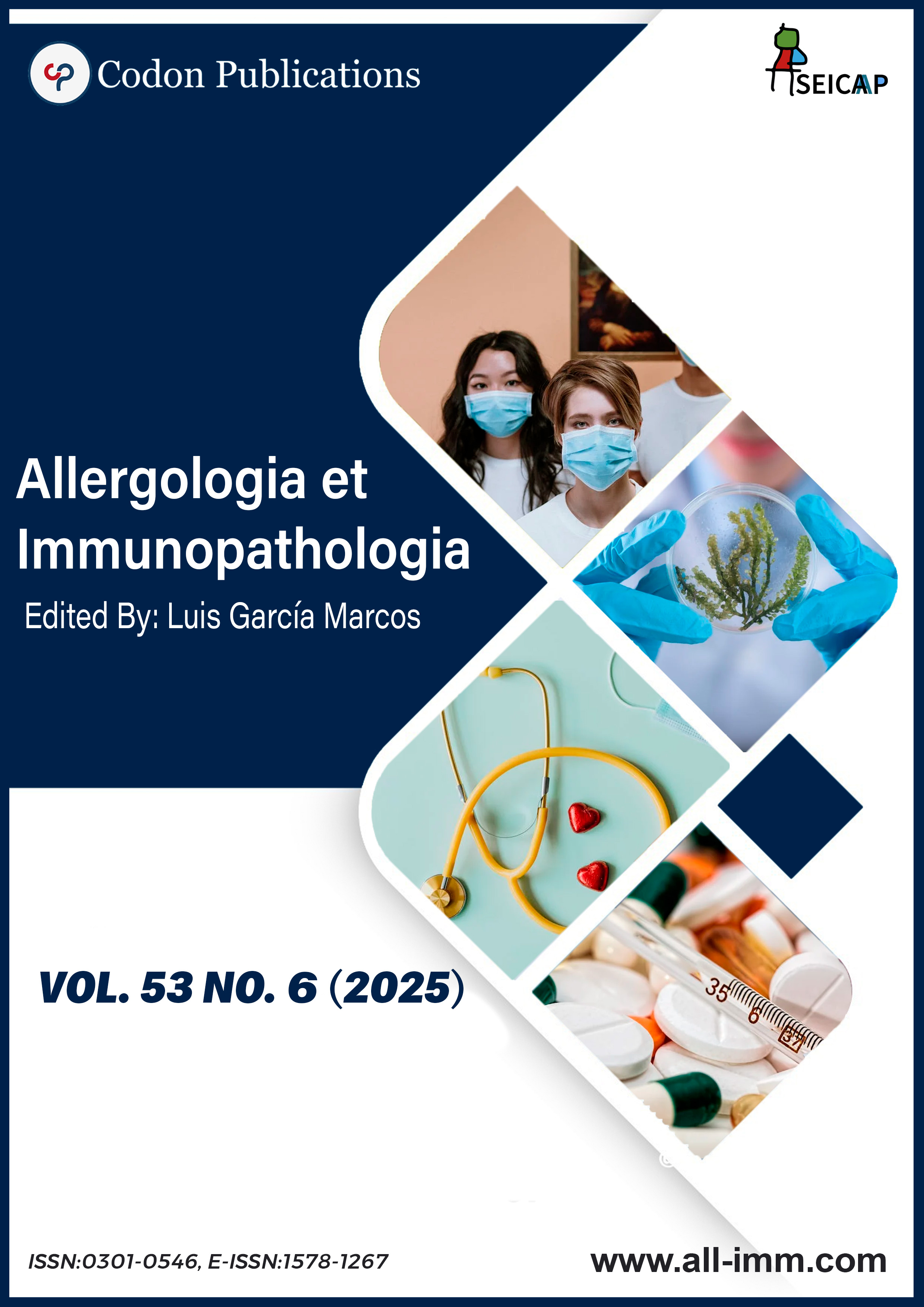First successful desensitization with Abemaciclib in an adult patient with breast cancer: A case report
Main Article Content
Keywords
Abemaciclib, Breast Cancer, CDK4/6 Inhibitor, Desensitization, Immediate-type Reaction
Abstract
Abemaciclib, a cyclin-dependent kinase 4/6 (CDK4/6) inhibitor, is an effective targeted therapy for hormone receptor-positive (HR+), HER2-negative, advanced or metastatic breast cancer. While nonimmediate hypersensitivity reactions (NIHRs) have been reported, no immediate hypersensitivity reactions (IHRs) to abemaciclib have been documented to date. Here, we report the first successful desensitization protocol for a patient who developed IHR to abemaciclib. A 75-year-old female with stage II breast cancer underwent a partial mastectomy followed by chemotherapy. Abemaciclib was initiated as part of adjuvant treatment. One hour after the third dose, she presented to the emergency department with lip swelling and urticaria. Symptoms resolved following the administration of intravenous methylprednisolone (0.5 mg/kg) and maleate pheniramine (45.5 mg/mL). Skin prick testing with abemaciclib was negative; however, a drug provocation test led to recurrence of urticaria at a cumulative dose of 150 mg. Given the clinical necessity of abemaciclib and the lack of alternatives, a 12-step desensitization protocol was implemented using 300 mg of abemaciclib dissolved in 100 mL of distilled water. The protocol was completed over 4 h, with no complications observed during the procedure or in the subsequent 3-month follow-up. The patient continued abemaciclib at 300 mg/day without recurrence of symptoms. This case highlights the importance of drug desensitization in oncology, particularly in patients for whom no alternative therapies are available.
References
2 Arora S, Narayan P, Osgood CL, Wedam S, Prowell TM, Gao JJ, et al. U.S. FDA Drug Approvals for breast cancer: A decade in review. Clin Cancer Res. 2022;28(6):1072–86. 10.1158/1078-0432.CCR-21-2600
3 Goetz MP, Toi M, Campone M, Sohn J, Paluch-Shimon S, Huober J, et al. MONARCH 3: Abemaciclib as initial therapy for advanced breast cancer. J Clin Oncol. 2017;35(32):3638–46. 10.1200/JCO.2017.75.6155
4 Dickler MN, Tolaney SM, Rugo HS, Cortes J, Dieras V, Patt D, et al. MONARCH 1, A Phase II study of abemaciclib, a CDK4 and CDK6 inhibitor, as a single agent, in patients with refractory HR(+)/HER2(-) metastatic breast cancer. Clin Cancer Res. 2017;23(17):5218–24. 10.1158/1078-0432.CCR-17-0754
5 Freedman RA, Graff SL, Somerfield MR, Telli ML, Wolff AC, Giordano SH. Adjuvant abemaciclib plus endocrine therapy in the treatment of high-risk early breast cancer: ASCO guideline rapid recommendation update Q and A. JCO Oncol Pract. 2022;18(7):516–9. 10.1200/OP.22.00140
6 Pu D, Wu Y, Xu D, Shi G, Chen H, Feng D, et al. The adverse events of CDK4/6 inhibitors for HR+/ HER2-breast cancer: An umbrella review of meta-analyses of randomized controlled trials. Front Pharmacol. 2024;15:1269922. 10.3389/fphar.2024.1269922
7 Castells M. Desensitization for drug allergy. Curr Opin Allergy Clin Immunol. 2006;6(6):476–81. 10.1097/ACI.0b013e3280108716
8 Raschi E, Fusaroli M, La Placa M, Ardizzoni A, Zamagni C, Poluzzi E, De Ponti F. Skin toxicities with cyclin-dependent kinase 4/6 inhibitors in breast cancer: Signals from disproportionality analysis of the FDA adverse event reporting system. Am J Clin Dermatol. 2022;23(2):247–55. 10.1007/s40257-021-00645-0
9 Gao JJ, Cheng J, Prowell TM, Bloomquist E, Tang S, Wedam SB, et al. Overall survival in patients with hormone receptor-positive, HER2-negative, advanced or metastatic breast cancer treated with a cyclin-dependent kinase 4/6 inhibitor plus fulvestrant: A US Food and Drug Administration pooled analysis. Lancet Oncol. 2021;22(11):1573–81. 10.1016/S1470-2045(21)00472-1

